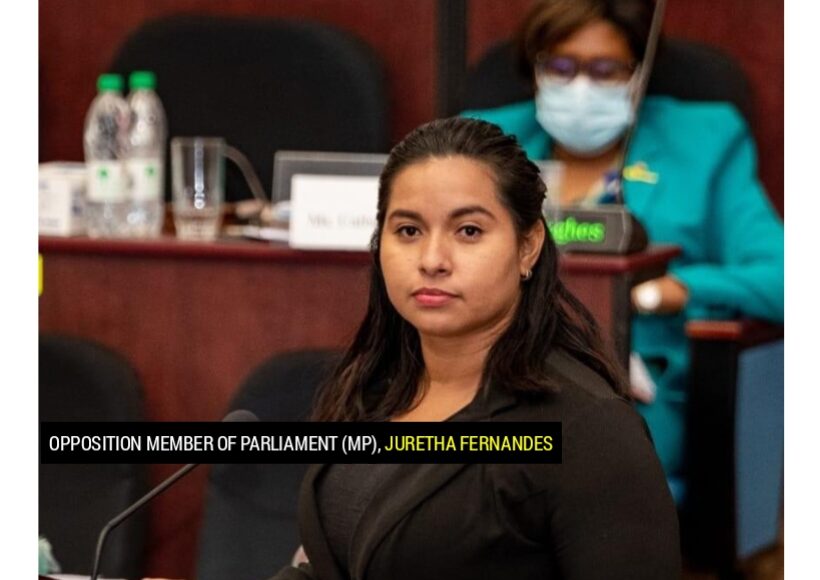Opening day one of the 2025 Budget Debates, Opposition Member of Parliament (MP) Juretha Fernandes laid sharp criticisms of the government’s $1.382 trillion budget and characterized its increased budgetary allocation as failing to lift the lives of citizenry out of poverty.
“We are living in a country that is on the world map because of oil revenues, but instead of enjoying the fruits of our oil revenues, we are living in a country that is now characterized by high inflation, low wages and salaries, high unemployment, poor matriculation rates, a country in which private health care is budgeted for while public health centres are poorly equipped, a country plagued by unreliable power supply,” Fernandes said.
The Opposition MP pointed out that government’s spending has failed to address worsening poverty. She noted that despite income from oil and massive spending the country’s poverty rate has worsened to 48%.
“This is the stark reality of PPP governance where spending over $3 trillion in oil revenues from 2020 to 2024 has left our people poorer than before,” Fernandes argued. She pointed out that by the end of 2025, the government will have spent $4.7 trillion. She explained that with such large expenditures, working families struggle to survive in a country that boasts one of the highest Gross Domestic Product (GDP) per capita.
Fernandes criticized the 2025 budget’s provisions for vulnerable groups. She pointed to the proposed $5000 increase in old age pension and the $3000 increase for public assistance. The MP said that the government has failed to show compassion to pensioners and the vulnerable in our country.
She added, “With a budget of $1.382 trillion, there is no adjustment in the minimum wage. Not for one second did they stop to consider the lowest-earning public servants that are facing a 44.8% increase in food prices from 2020 to now.”
Addressing inflation, Fernandes shared statistics from the Bureau of Statistics. “From 2019 to 2024, inflation went up by 20%, and worse, food inflation increased by 44.8%. Inflation in food items does not affect the wealthy; it affects the working class and is detrimental to the working poor. Yet, for the same period, wages and salaries only increased by 35%,” she noted.
She also accused the government of not addressing key economic challenges. She stated that the government’s ability to reduce inflation is a sign of it failing the nation.












Who are these vulnerable groups? They need to get off their asses and work instead of wanting handouts.